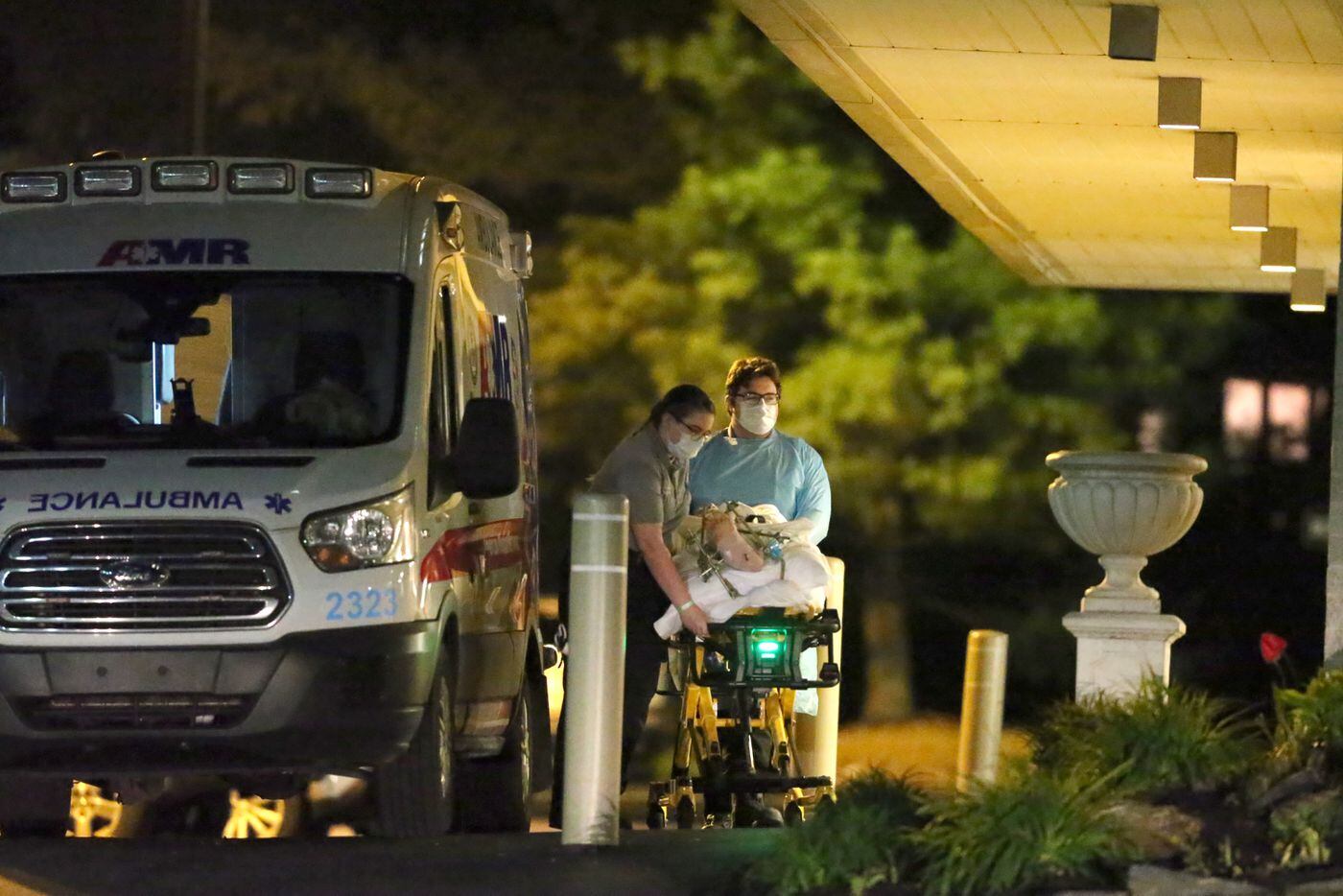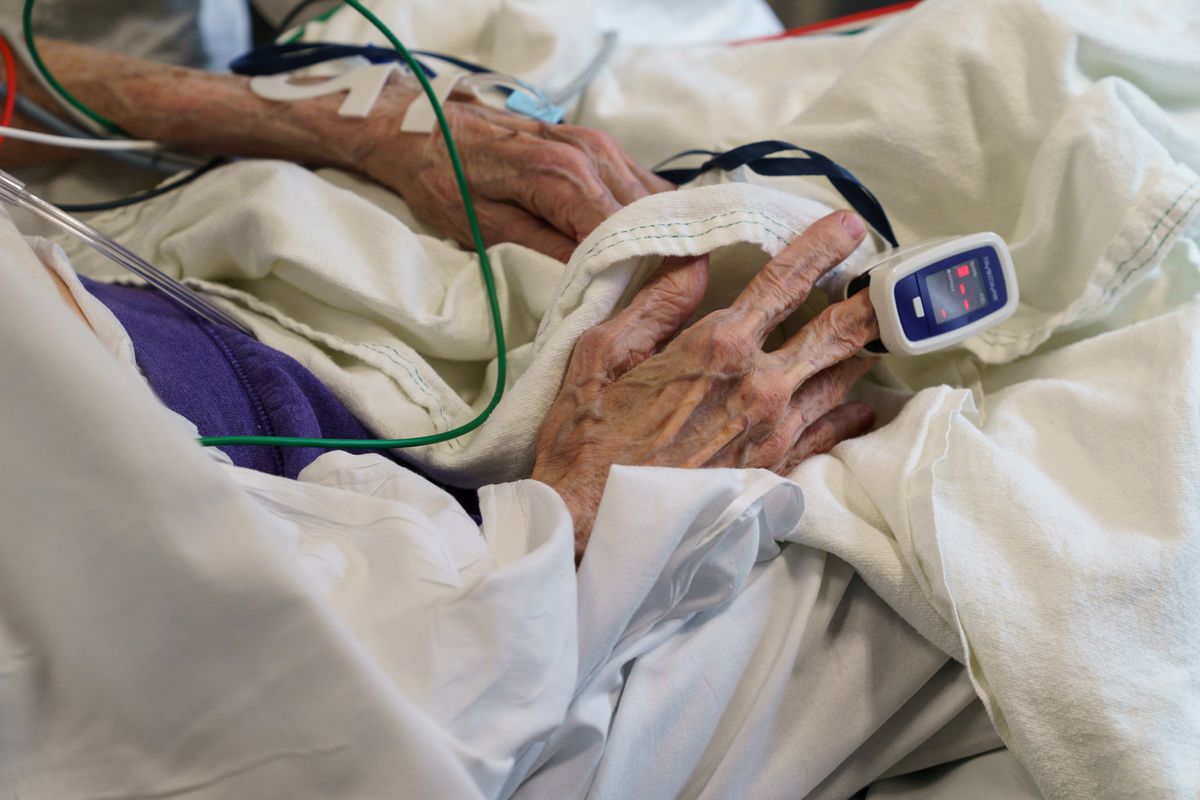HARRISBURG — Pennsylvania’s plan to protect its nursing homes was robust and aggressive.
In mid-March, before the coronavirus had widely taken hold across the state, emergency response officials drafted a three-page blueprint for quick strike teams of medical professionals that would respond to facilities as soon as a few positive cases were confirmed.
The teams — made of epidemiologists, nurses, emergency management personnel, and medical experts — would show up at a facility within six hours of a call for help, according to internal documents obtained by Spotlight PA. Within two hours, they would complete an assessment of the facility’s needs and create a plan to address them.
The teams would train nursing home staff on infection-prevention protocols, provide personal protective equipment, help identify secluded quarantine areas, gather information for visitor and staff contact tracing, confirm a staffing plan, and more, according to the documents.
The quick response plan was circulated within the Health Department, with emails showing staff nurses and others were asked to volunteer. In the third week of March, it was shared with providers, said Zachary Shamberg, president and CEO of the Pennsylvania Health Care Association, which represents more than 400 long-term care facilities.
But the plan was never fully implemented, and a similar — though far more limited — effort wasn’t activated until mid-April, long after major outbreaks had already taken hold.
“This was being touted as the answer to the epidemic,” Shamberg said. “This was the state support we were counting on.”
“I have to believe if these teams had been ready and prepared, we’d be in a much better place than we are today.”
A spokesperson for the state Health Department, April Hutcheson, said she was unaware of the quick response team plan, but noted that many of the concepts that were part of it have been implemented. The state has been trying to provide as much help as possible “virtually,” she said.
State Health Secretary Rachel Levine said nursing homes have always been a priority.
“I don’t think our initial and our continuing plans have been misguided at all,” Levine said at a May 4 news conference. “We have been working very hard throughout this entire process on protecting those homes as much as possible. It’s a significant challenge, and we’re continuing to do the very best we can.”
The outbreak of COVID-19 was always feared to be particularly acute among older populations in Pennsylvania, which has one of the highest numbers of nursing homes in the nation. But a growing chorus of providers, advocates, lawmakers, families, and residents now says that state officials were too slow to act and are still not doing enough to help.
In the meantime, some facilities have become death traps.
As of Friday, state officials reported infections at 522 facilities and 2,458 deaths, which is 68% of all COVID-19 fatalities statewide. Roughly 900 new deaths in these facilities have been reported in just the last week. Despite the alarming numbers, the administration has stuck by its modest goals for increased statewide testing and has not committed to wider testing at nursing homes.
By contrast, Maryland, West Virginia, Wisconsin, Massachusetts, and Tennessee have committed to testing all long-term care residents and staff. In Maryland and Massachusetts, health officials also have formed “strike teams” to help overwhelmed facilities navigate outbreaks and mitigate the spread.
Levine said at a legislative hearing Thursday that state officials were discussing strategies to expand testing. But Sen. Lisa Baker (R., Luzerne) countered, “The time for robust discussing is over and the time for action is now.”
As soon as that news broke, Pennsylvania officials should have visited facilities, prioritizing those with a history of infection-control issues, to assess if they had enough staff and protective equipment, said Diane Menio, executive director of the Center for Advocacy for the Rights & Interests of the Elderly.
“Not just looking at data, but going in and making sure there were people there and that they had a plan,” Menio said. “But that wasn’t happening.”
State health officials said they began sending advisories about COVID-19 to nursing homes in January. Since then, Hutcheson said, the department has provided guidance on separating sick staff and residents from those who are healthy, offered consultations on infection control, and regularly sent facilities personal protective equipment — even as lawmakers, families, and facility staff said supplies remain scarce.
Although the department doesn’t have quick response teams by that name, Hutcheson said, “in effect, those things are happening.”
“Any provider who wants support and consultation is getting that support and consultation,” she said, adding that the National Guard has been used to assist on the ground.
In early April, the Pennsylvania National Guard sent medics and nurses to a few facilities where a significant number of staff were out sick, a spokesperson, Lt. Col. Keith Hickox, said. As the requests for support increased, the guard on April 22 began dispatching a crew to distressed facilities to assess their needs — similar to the original strike team plans.
To date, the guard has visited just 11 facilities — 2% of those reporting cases — and along with supporting testing sites around the state, the guard’s medical assets are now near capacity, Hickox said.

CHARLES FOX / Staff Photographer
The Pennsylvania National Guard sent 18 military nurses and medics to help at the Broomall Rehabilitation and Nursing Center in Delaware County, but so far it’s been una

